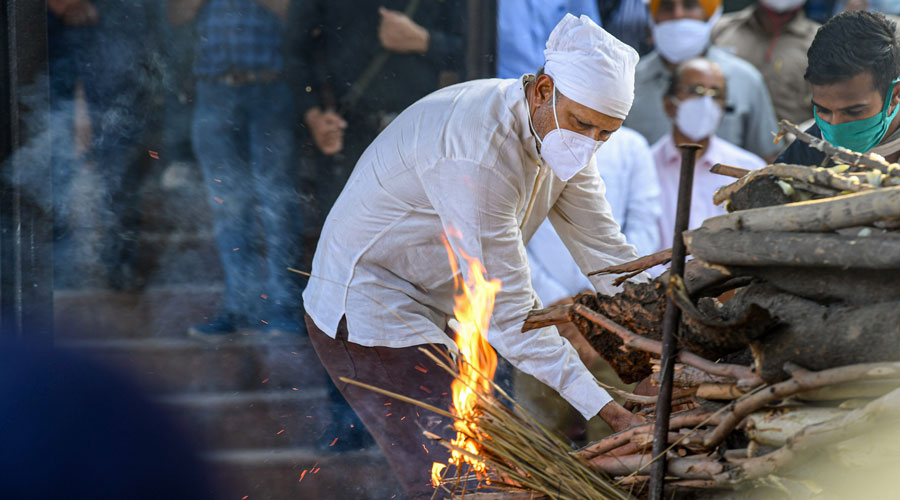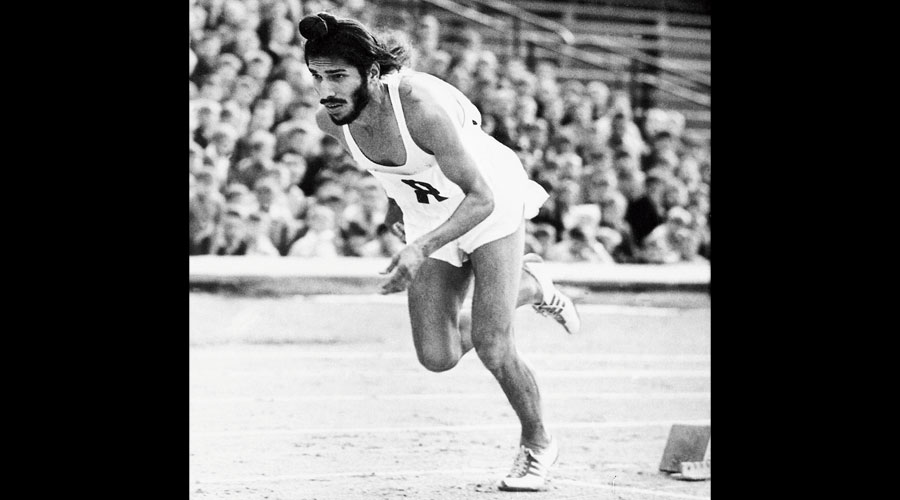My first meeting with Milkha Singh was 62 years ago. The year was 1959, I had got my maiden call-up to the Indian hockey camp in Patiala. Milkha was also there because the Rome Olympics was round the corner.
Milkha by that time was a name for himself having won the Asian Games and Commonwealth Games gold medals. He was very friendly with Leslie Claudius since Claudius was a regular feature in the Olympic team. There was a lot of banter between the two with Milkha pestering him to teach him ballroom dance and all. It was all in jest.
In those days, whoever was in the Patiala camp would have to take part in cross-country race to build stamina. There I saw the real Milkha. Even as we huffed and puffed to complete one leg, we watched in awe as he waved back while doing the return leg. In that age hockey players did not have a high level of fitness as compared to athletes like Milkha or Gurbachan Singh Randhawa. What struck me then was Milkha’s stamina and dedication.
The 1964 Tokyo Olympics was his last and my first. And when we were playing against Pakistan in the final, Milkha, Randhawa and Karni Singh were all there at the ground shouting for us. After the final hooter was blown and we won, the scene was maddening. Milkha’s joy knew no bounds as he came onto the pitch doing bhangra. It’s so fresh in my mind.
Strangely, Milkha did not receive the Arjuna Award when he was at his peak. When the Indian government decided to finally present him with the Arjuna in 2001, he flatly refused arguing that he was already a Padma Shri award winner. Haripal Kaushik, who won Olympic medals in 1956, 1960 and 1964, got an Arjuna only in 1999. It was as if the powers that be suddenly realised, ‘well there is also a Milkha or a Haripal Kaushik’.

Jeev Milkha Singh performs the last rites of his father Milkha Singh in Chandigarh on Saturday. (PTI)
Milkha’s is a story of tremendous courage, fighting spirit and perseverance. Somebody who survived the tragedy of Partition having lost his parents in the mindless violence, Milkha is an inspiration, so revered. To me, Milkha’s exploits on the track made a fledgling nation realise ‘yes, we can also run and run like the stronger and the bigger countries’.
True, Indian hockey was making waves at that time but athletics is the mother of all sports. You need strength, stamina and discipline. More than his two Asian Games gold medals (200m and 400m) in 1958, to me the Commonwealth Games triumph in the same year in Cardiff holds more importance. That’s because those days in Asia competition in sprint was not that good. But in Cardiff, against some top athletes, Milkha shone and how.
Two years later though he did something which surpassed even the Cardiff feat. In the Rome Olympics, he finished fourth in the 400m and became the toast of the nation. Everything happened in 46 seconds and all four broke Olympic records.
That race made the ‘Flying Sikh’ a legend and till this day our romanticism with his close miss continues.
Milkha’s relevance will always be there as we still wait for our first track and field medal from the Olympics. Yes, PT Usha had a similar fate like Milkha’s in 1984 Los Angeles, but the Sardar still holds us in awe.
He will remain an icon for everyone… Whether it is for an 86-year-old like myself or for an aspiring sprinter who dreams of making it big.
⦿ Gurbux Singh is a former India hockey captain and 1964 Olympics gold medal winner.
As told to Angshuman Roy










